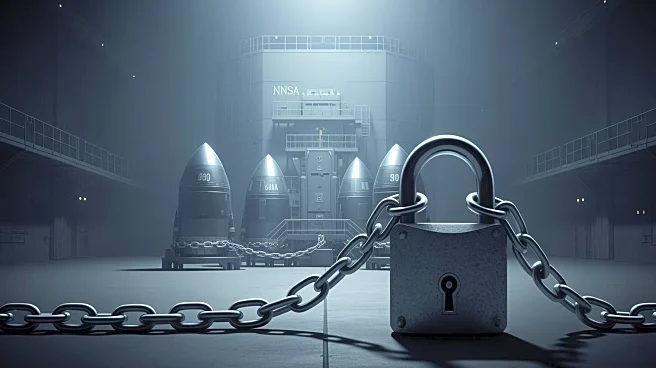What's Happening?
The National Nuclear Security Administration (NNSA) is set to furlough approximately 80% of its workforce due to the ongoing government shutdown, which has become the longest in U.S. history. This decision affects critical operations related to the management
of the U.S. nuclear arsenal. Lawmakers have expressed concerns that the agency may have to shift to a 'minimum-safe' operational mode, potentially compromising safety and oversight. Energy Secretary Chris Wright plans to visit affected sites as the funding crisis threatens national security. The NNSA, responsible for safeguarding America's nuclear weapons stockpile, has exhausted its carryover reserves, leaving only 375 essential staff members to continue working.
Why It's Important?
The furlough of NNSA employees poses significant risks to national security, as the agency plays a crucial role in maintaining the safety and functionality of the U.S. nuclear arsenal. The suspension of services like stockpile maintenance and global security programs could delay sensitive national defense projects, which require consistent oversight. The shutdown highlights the vulnerability of critical government functions to political impasses, potentially affecting the safety and security of the nation. The situation underscores the importance of resolving budgetary disputes to ensure the uninterrupted operation of essential services.
What's Next?
With no political breakthrough in sight, the government shutdown is evolving into a national security risk. The NNSA will operate with a skeleton crew focusing on hyperspecific safety operations, including reactor safety for navy vessels and monitoring nuclear materials. The agency's contingency protocols will prioritize essential security tasks, but the suspension of broader services may lead to delays in defense projects. Energy Secretary Chris Wright's visit to affected sites may prompt further discussions on resolving the funding crisis and restoring full operations.
















